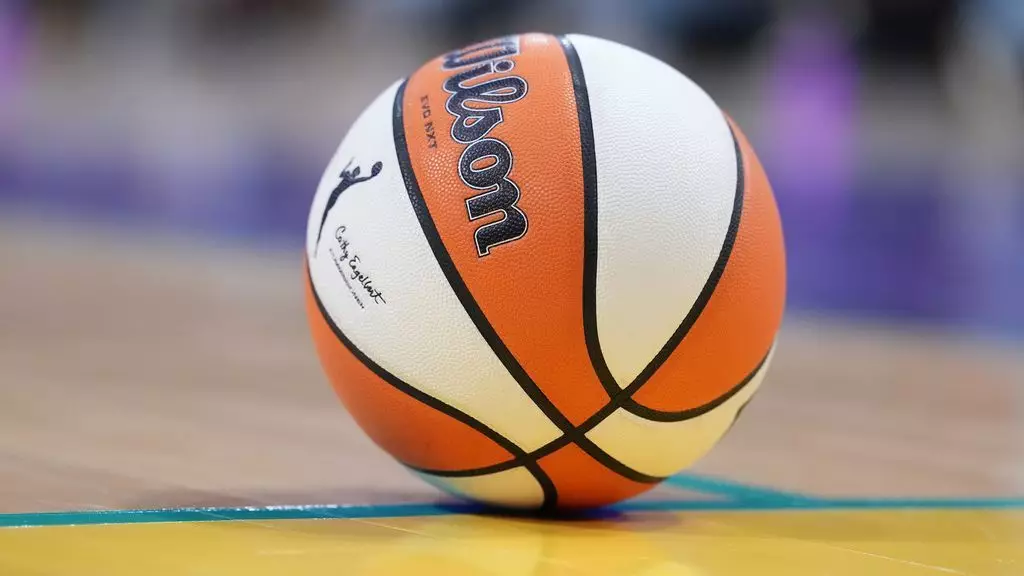Recent weeks have revealed a disturbing pattern of disrespectful behavior disrupting professional sports, specifically in the WNBA. From thrown objects such as sex toys to bizarre debris landing on the court, these incidents go beyond mere mischief—they threaten the integrity and safety of the game. What’s alarming is not just the frequency but the normalization of such conduct in what should be a symbol of fair competition and mutual respect. When fans cross the lines of decency, they do more than offend players—they undermine the very essence of sportsmanship that makes athletic competition meaningful.
The latest incident at Los Angeles’ Crypto.com Arena, where a green sex toy was hurled onto the court near Indiana Fever player Sophie Cunningham, exemplifies a growing issue that cannot be ignored. Such acts stem from a broader societal failure to uphold respect for others, especially for those who dedicate their lives to the game. These acts, while seemingly trivial or humorous to some, have serious implications on safety and dignity. Player safety is a fundamental concern, yet the repetitive nature of these disturbances suggests that some fans believe they can get away with more audacious displays of disrespect.
The Impact on Players and the Game’s Integrity
Athletes pour enormous effort and passion into their sport, and their focus should be on competition, not dodging flying objects or dealing with unwanted distractions. The emotional toll of these incidents can be significant, often affecting performance and mental well-being. For example, Sophie Cunningham’s reaction—initial surprise then laughter—may seem light-hearted, but underlying it is the reality that players are often left vulnerable in moments that should be solely about skill and strategy.
Leaders like Sparks coach Lynne Roberts and WNBA players like Kelsey Plum emphasize the importance of maintaining the dignity of the sport. Their responses—highlighting safety and respect—are not just lip service but a call for a cultural shift. Yet, calls for respect are met with repeated incidents, indicating a deeper societal issue: a pervasive attitude of entitlement and dispersal of boundaries that has seeped into arenas. The game’s integrity suffers when fan misconduct becomes a recurring spectacle, threatening not just safety but the moral fabric of sports as a unifier and a discipline rooted in respect.
Societal Reflection or Just Disrespect?
These disruptions mirror a broader societal decline in civility and accountability. Throwing objects, especially those with explicit connotations like sex toys, signals a lack of regard for others’ comfort, safety, and dignity. It reflects a culture increasingly desensitized to decency, where provocative behavior is sometimes mistaken for humor or rebellion. This trend is dangerous because it normalizes disrespect, making little distinctions between harmless jest and unacceptable hostility.
Public reactions vary from amusement to outrage, but the underlying issue remains unaddressed: how do we preserve respect in spaces that are fundamentally designed for communal celebration and competition? The league’s response, emphasizing safety and deterrence, is crucial. However, it must be complemented by broader cultural efforts to foster respect and accountability among fans. Otherwise, we risk turning sporting arenas into battlegrounds where contempt replaces camaraderie.
By highlighting these incidents, we confront uncomfortable truths about how society’s decline into desensitization threatens institutions dedicated to fair play. Sports are more than entertainment—they are a reflection of societal values. When we accept or overlook disrespect in the arenas, we tacitly endorse a decline in civility that can spill into everyday interactions, eroding community and mutual respect.
A Call for Change and Responsible Spectatorship
The solution is not merely increased security or harsher punishments. It requires a cultural shift—an insistence that respect and safety are non-negotiable. Sports leagues must lead this charge, setting firm standards and actively discouraging disruptive behavior. Fans, too, bear responsibility; their role as participants in a shared experience demands decorum, or at minimum, an acknowledgment that their actions have consequences.
Sports should be a sanctuary for joy, competition, and unity—not chaos and disrespect. The incidents in the WNBA, along with others across leagues, underscore an urgent need for societal introspection. Do we value entertainment at the expense of decency? Are we willing to accept spectacle over substance? Or can we rally around the core principles of respect that elevate sports from mere entertainment to a true reflection of community values? The answer lies in collective responsibility—only then can we stem this tide of disrespect and restore sports as a cherished institution that unites us rather than divides us.


Leave a Reply